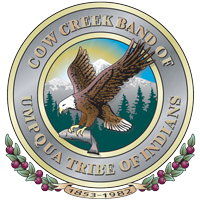National Health Observances in March: Colorectal Cancer, Nutrition, HIV/AIDS
March is Colorectal Cancer Awareness Month
March marks Colorectal Cancer Awareness Month, a time to spread awareness and understanding about colorectal cancer – the third most common cancer diagnosed in both men and women in the United States. Our health and well-being are our most valuable assets, and it’s crucial we take a moment to educate ourselves about the risks, symptoms, and treatments associated with this disease.
Risk Factors
- Age: The majority of cases are found in people aged 50 and older, but it can occur at any age.
- Lifestyle: Factors such as a diet high in red and processed meats, physical inactivity, obesity, smoking, and heavy alcohol use can increase risk.
- Personal or Family History: Having a history of colorectal cancer or polyps and certain genetic syndromes, like Lynch syndrome, increases risk.
- Racial and Ethnic Background: African Americans have a higher risk of developing and dying from colorectal cancer.
Symptoms
Symptoms often appear only with more advanced cancer. It’s important to consult with a healthcare provider if you experience any of these symptoms, regardless of your age or health history. They include:
- Changes in bowel habits, including diarrhea or constipation or changed consistency of your stool.
- Rectal bleeding or blood in your stool.
- Persistent abdominal discomfort, such as cramps, gas, or pain.
- A feeling that your bowel doesn’t empty completely.
- Weakness or fatigue.
- Unexplained weight loss.
Prevention and Screening
Regular screening starting at age 45 is key. Screenings can detect colorectal cancer early when treatment is most effective and can even prevent the disease by finding and removing precancerous growths. Speak with your healthcare provider about which screening tests are right for you.
Treatment
Treatment options vary depending on the stage of cancer and can include surgery, radiation therapy, chemotherapy, targeted therapy, and immunotherapy. Early detection through regular screenings significantly increases the chances of successful treatment.
As part of our commitment to your health and well-being, we encourage you to take this opportunity to learn more about colorectal cancer and its prevention. If you are over the age of 45 or have a higher risk due to family history or other factors, please consider scheduling a screening. Your health is important to us, and we support your efforts in taking proactive steps towards maintaining it.
Let’s use this month to spread awareness and encourage one another to take charge of our health. Should you have any questions or need support in accessing healthcare services, please do not hesitate to reach out to CCHWC.
Together, we can make a difference in the fight against colorectal cancer.
Sincerely,
Dr. Jacqueline J. Bae
Health Operations Officer
Other National Health Observances in March
In addition to Colorectal Cancer Awareness Month, March is also a time to foster awareness for other prominent health concerns. Below are two such observances that were the top picks of health.gov, the official website of the U.S. Department of Human Services, as well as where you can find more information on these important health topics.
National Nutrition Month
Every March, the Academy of Nutrition and Dietetics sponsors National Nutrition Month to help people make informed food choices and develop positive eating habits.
Learn More About National Nutrition Month
eatright.org
USDA MyPlate Resources
myplate.gov/resources
U.S. Food and Drug Administration’s Nutritional Education Materials
fda.gov/food/food-labeling-nutrition/nutritioneducation-resources-materials
Dietary Guidelines Toolkit
dietaryguidelines.gov/professional-resources
MyHealthfinder Nutrition Resources
health.gov/myhealthfinder/healthy-living/nutrition
Move Your Way Healthy Eating Stories
health.gov/moveyourway/stories
National Women and Girls HIV/AIDS Awareness Day
On March 10, the US Department of Health and Human Services’s Office on Women’s Health (OWH) celebrates National Women and Girls HIV/AIDS Awareness Day (NWGHAAD) to raise awareness about prevention, treatment, and the impact of HIV/AIDS for women and girls across the nation.
Learn More About NWGHAAD
womenshealth.gov/nwghaad
MyHealthfinder Resources for HIV Testing
health.gov/myhealthfinder/health-conditions/hivand- other-stds/get-tested-hiv
Questions to Ask Your Doctor about HIV
health.gov/myhealthfinder/health-conditions/hivand- other-stds/hiv-testing-questions-doctor
Programs to Help Prevent HIV and Other Sexually-Transmitted Infections
health.gov/healthypeople/objectives-anddata/browse-objectives/sexually-transmittedinfections/evidence-based-resources





